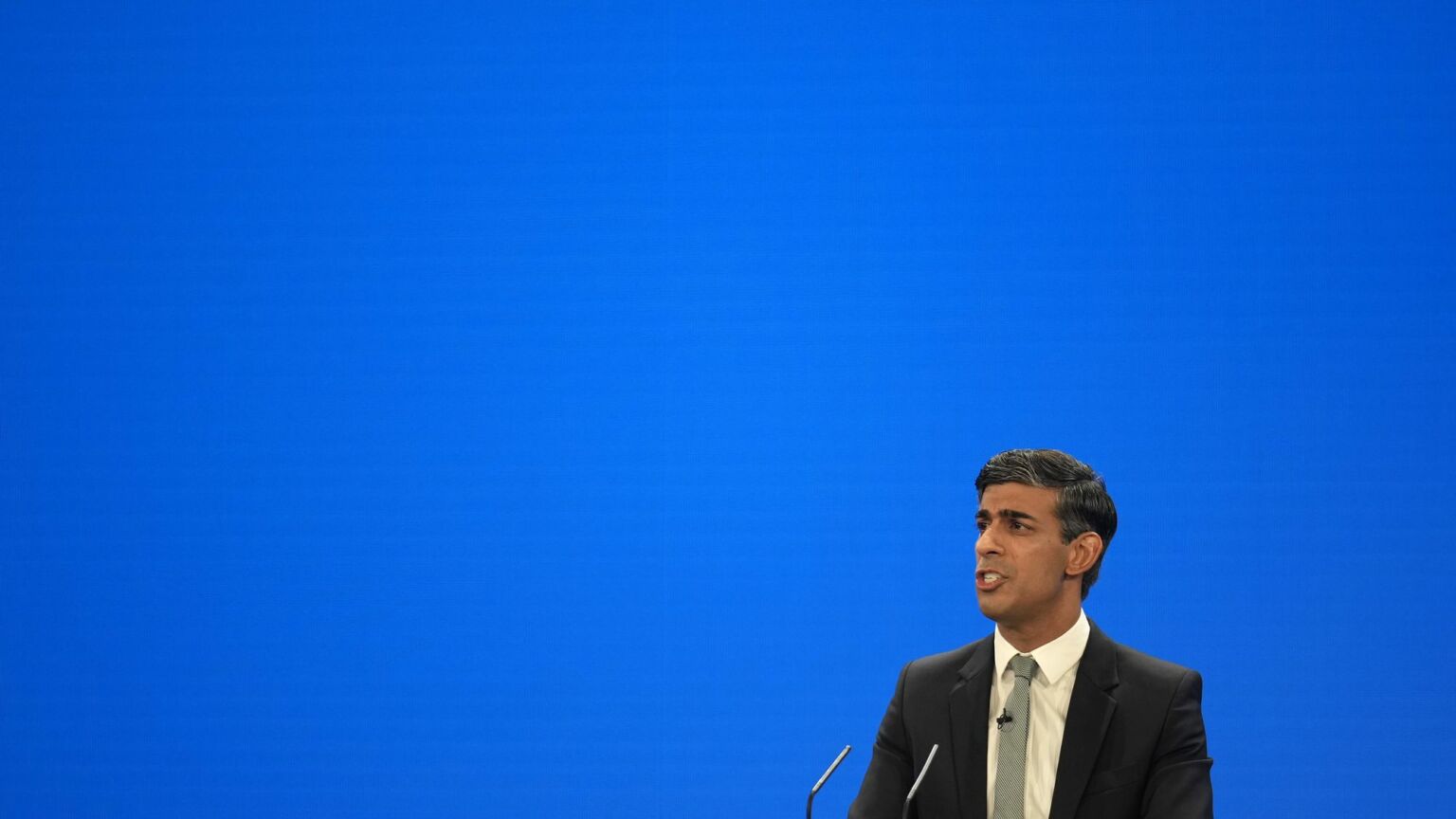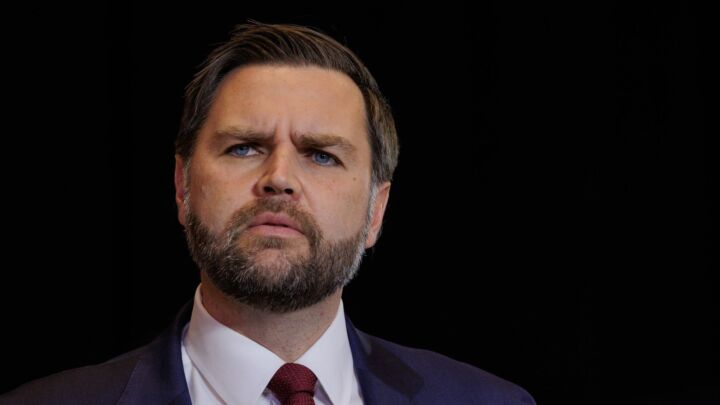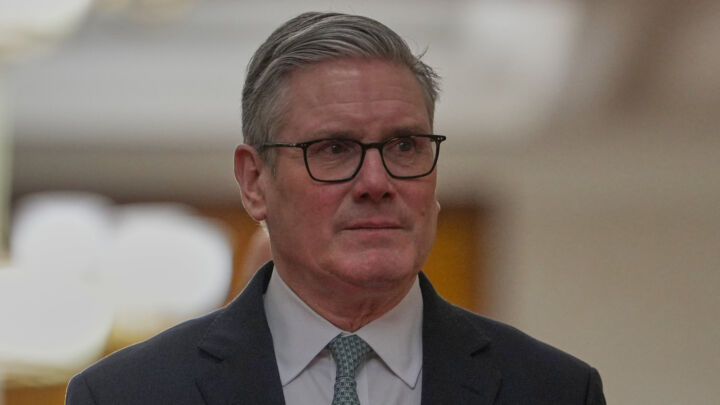Rishi Sunak and the folly of managerialism
Politicians who believe in nothing end up achieving nothing.

Want unlimited, ad-free access? Become a spiked supporter.
‘The grown-ups are back in charge’, declared The Times. ‘Whisper it, but Rishi Sunak is turning out to be a very competent prime minister indeed’, gushed the i. Reading the takes from the early days of UK PM Rishi Sunak’s hapless reign is like peering into a parallel universe – a stark reminder of the insight black hole that is Britain’s chattering classes.
As this General Election campaign draws to a close, the Conservatives have ended where they started: 20 points behind the Labour Party and staring down the barrel of a historic rout. And even that doesn’t do justice to what a tragicomic cock-up this has been for the supposed natural party of government. Sunak called the election early, in the hope of wrong-footing Reform UK, before deciding that cutting out of D-Day early would be a great way to court Reform-curious voters. Six weeks later and Reform is eclipsing the Tories in some polls and Nigel Farage is most probably on his way to parliament. What began with that rain-sodden press conference and ended with a grubby Tory Party gambling scandal has been a masterclass in bungling from start to finish.
That Sunak is not one of life’s great showmen has been clear, even to those starry-eyed pundits, from day one of his premiership. But what stands out, as Sunak packs up his Sambas and Star Wars memorabilia in preparation for a hasty dash back to California, is how similarly inept he has been at pretty much everything else. The man once hailed by the Labourite New Statesman as an ‘intellectually nimble and open-minded technocrat’ has been a disaster, even on the meagre, managerial terms he set for himself.
Remember Sunak’s five pledges? I’m sure we all remember where we were when he announced them, on 4 January 2023. Presenting himself as a doer, a problem-solver, a man who would finally ‘deliver’ after the bluster of Boris and Liz Truss’s economic jihadism, Sunak promised to halve inflation, grow the economy, reduce debt, cut NHS waiting lists and stop the boats. Eighteen months on and the only target he properly, measurably hit was bringing down inflation, which he had very little influence over and everyone expected to come down anyway. Meanwhile, small-boats arrivals have topped 50,000 since Sunak took office, the economy grew by a mighty 0.1 per cent last year and it remains wise to request a doctor’s appointment months in advance of any detectable ill-health surfacing.
By the time Sunak announced five additional, vague ‘long-term decisions’, at another slick press conference in November 2023, even journalists had started to tune him out. ‘The priorities went largely unnoticed by the media until journalists approached Downing Street afterwards and were told they were intended to be a significant moment’, read a report at the time in the Guardian. What a detail. This, I’ll have you know, is a significant moment. It was like Jeb Bush asking that stoney-faced audience to ‘Please clap’.
Sunak is a walking, talking reminder that technocracy is a con – that the politicians and institutions most keen to fetishise ‘competence’ and ‘delivery’, over the messy business of ideology and democratic politics, are often rank incompetents who would struggle to deliver a pizza. Indeed, it is precisely Sunak’s deference to the blob – to the prevailing orthodoxies of the state and the quangocracy – that made him being the man to finally fix Britain’s deep-seated problems such an unlikely prospect. His coronation as PM – all without the say-so of Tory members, let alone the country at large – was premised on the claim he would ‘calm the markets’ after the mini-budget meltdown and that he would defer to the wisdom of the Treasury mandarins, the Bank of England and the Office for Budget Responsibility, who were all so outrageously defied by Truss and Kwarteng. In practice, this meant deferring to the very ‘experts’ who have for decades been presiding over Britain’s economic decay.
Occasionally, Sunak’s liberal-left critics like to pretend that he is actually very ideological; that beneath the affable exterior lurks the heart of a ‘right-winger’, an ‘authoritarian’ or, worst of all, a ‘culture warrior’. But other than being relatively unusual among frontline politicians in being able to confidently – and correctly – define what a woman is, Sunak has been about as limp and as ineffectual in pushing back woke ideology as his immediate predecessors. What successes there have been had little to do with him, and look likely to be undone by the coming Labour landslide. Had Sunak wanted to deal a decisive blow to wokeness, he could have proposed junking the Equality Act. Had he wanted to halt illegal immigration, he could have pledged to leave the ECHR – not just threatening to maybe think about it, if and when the time comes. But he hasn’t. Even now he’s wary about going full pelt on the small boats or the culture war, when he has one foot out of the door and any pledge he makes is purely academic.
Sunak may well be sincere in wanting to stop the boats, or stop teachers from telling nine year olds that women can have testicles. Even technocrats will have views on things. But his actions betray fundamentally weak convictions. He is simply unwilling to do what is necessary to achieve even his stated goals – particularly if doing so would mean rattling elite opinion, looking bad in front of the ‘international community’ or defying the writ of supranational institutions. Indeed, even Sunak’s Euroscepticism, which goes back to his school days, is oddly bloodless and – ironically – technocratic. ‘I wasn’t ideological about it’, Sunak once said of his support for Brexit. ‘Somewhat analytically, I sat down and looked through the numbers.’ Our historic blow for democracy was, for him, akin to a savvy investment decision.
Easily the most pathetic feature of Sunak’s short tenure has been his desperate casting around for a ‘legacy’. (Which is about as absurd as trying to give yourself a nickname. You don’t usually get to pick it – and it’s not usually flattering.) For about five minutes last year, he wanted it to be saving the world from the supposedly apocalyptic risks of artificial intelligence. ‘This is his climate change’, allies briefed the newspapers. In the end, this epochal struggle amounted to him hosting a swish conference starring Elon Musk, and getting the assembled tech bros to sign a communiqué. Beyond that, he’s settled on making maths great again – and banning smoking. He managed to get the latter through the Commons, with the enthusiastic support of Labour. But in trademark Sunak style, the ban’s final passage into law was halted by the snap election that he himself called. Now, this miserable act of prohibitionism will likely become part of Starmer’s ‘legacy’, not his.
If there’s a lesson to be learned from the Rishi Sunak era, it’s this: politicians who believe in nothing, quite often end up achieving nothing. Nothing good, anyway.
Tom Slater is editor of spiked. Follow him on X: @Tom_Slater_
Picture by: Getty.
£1 a month for 3 months
You’ve hit your monthly free article limit.
Support spiked and get unlimited access.
Support spiked – £1 a month for 3 months
spiked is funded by readers like you. Only 0.1% of regular readers currently support us. If just 1% did, we could grow our team and step up the fight for free speech and democracy.
Become a spiked supporter and enjoy unlimited, ad-free access, bonus content and exclusive events – while helping to keep independent journalism alive.
———————————————————————————————————————————–
Exclusive January offer: join today for £1 a month for 3 months. Then £5 a month, cancel anytime.
———————————————————————————————————————————–
Monthly support makes the biggest difference. Thank you.











Comments
Want to join the conversation?
Only spiked supporters and patrons, who donate regularly to us, can comment on our articles.